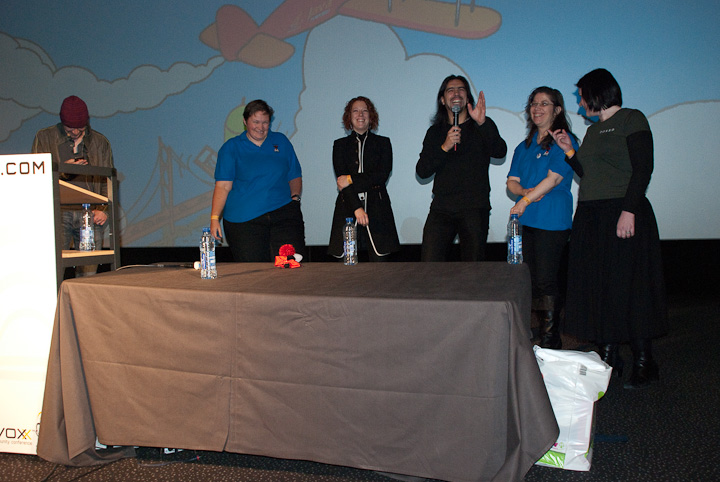Let's celebrate our IT women
"Everyone" knows that there are more men than women in IT. That it's a "boys" job. Not a lot of people know that the first programmer was a woman. Not a lot of people realise the number of women in IT is DECREASING. And has been since the 80s. In a working world where I honestly believe that in general there are more opportunities for women (OK, inline with the other stuff I've been reading I'll caveat this with white, middle-class women), it seems shocking that such a growth industry as IT is actually losing women, and appears unable to determine why, or stop the flow.
I get asked a lot, as a girl programmer, why there aren't more women in IT. This is a complicated issue and one I've been thinking about for years and still don't have any good answers, but I personally think it's more about perception than anything else.
I don't think it's because you get more outright sexism and laddish behaviour in IT than anywhere else. I've worked in half a dozen companies, in a range of industries, including very male industries like manufacturing and banking, I've been a consultant so been onsite at a bunch more companies. And I have to say I don't think I've ever seen the sort of behaviour that is mentioned in the article.
I would go so far as to say IT, certainly in terms of programming or IT support, actually attracts men that are quite the opposite to laddish. So here I will succumb to gross generalisation and stereotypes myself, but the guys I've worked with are highly intelligent and more likely to rate you on your ability than on your colour, sex or background. These are often guys who were actually studying at school rather than absorbing anti-female sentiments in the pub or from The Sun.
I find being a woman in IT both a blessing and a curse. As a girl, you are, I believe, more likely to get through to interview, and since you stand out as different are more likely to be remembered and called back for a second interview. I think once in the organisation, we suffer more with low self-esteem and find ourselves constantly trying to "prove" that we're not just some token bimbo hired by HR. And do you know why? Not because anyone ELSE thinks that, but because WE think that. We are our own worst enemies.
We need to take a leaf from the boys' book and have more faith in ourselves, more confidence. We might not be as good as that person over there at this particular thing, or this other person at something else, but we are good at what we do, otherwise we wouldn't be there. And if we express our insecurities instead of our confidence, other people will assume we're as mediocre as we sometimes think we are.
Some of the very worst culprits for sexism in our industry are us, the girls who are already in it. Yes, it does exist, I am not denying that for a second1. But the way to overcome it is to reflect it back at them, not to internalise it as our problem, something wrong with us for being in the wrong job. The more we show that it's normal for us to be here, that we belong here, the better we'll feel about ourselves. And maybe we'll attract a few more girls too.
;1Take, for example, the CEO who interviewed me and said "I'm probably not allowed to say this, but how will you feel working in an environment full of men". To which my answer was, have you read my CV? I went to a boys' school for sixth form, I was one of 6 girls on my degree course (out of approx 150), I worked at Ford for 4 years. Don't you think I would be more freaked out working with girls?



